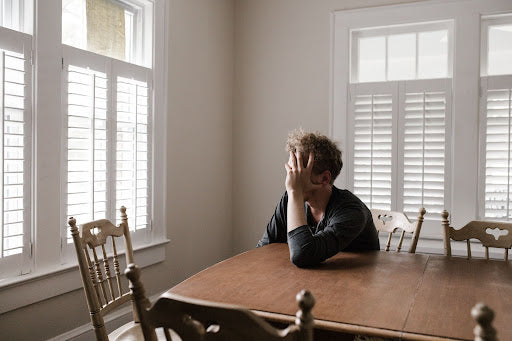Affecting more than 264 million people worldwide, depression is a common mental health problem characterized by consistent sadness or lack of interest in previously enjoyable activities. Though the importance and fragility of this mental health condition has been long realized, the ongoing pandemic has brought it into greater focus.
There may be people suffering from mental illness like depression in your family, at your workplace, or living next to you. But only half of them receive the right treatment due to the stigma attached to it. As a result, we wrote this article to shine a light on depression, especially, what it is, it’s main causes, symptoms, and possible solutions.
What is Depression?
Depression is a mental health disorder that may cause symptoms like low mood, lack of interest in activities, difficulty concentrating on tasks, weight gain or loss, and thoughts of suicide.
Also known as Major Depressive Disorder (MDD) or clinical depression, it causes people to feel sad and lose interest in the things they love. Depression can lead to emotional, physical, and mental complications as well as decreased productivity at work or school.
People often struggle with depression because of how it makes them think about themselves - some may even believe their life isn't worth living anymore.
Depression is more than just feeling sad. It’s an all-encompassing state where people experience negativity like never before, making even getting out of bed difficult.
What are the Causes of Major Depressive Disorder?
Major depressive disorder (MDD) or depression can occur for a variety of reasons such as the death of a loved one, loss of employment, financial troubles, hormonal imbalance, age, or biochemical factors. It's important to identify MDD early and get help from a mental health professional because of its negative impact on one's ability to perform basic daily living activities like getting out of bed, going to work, or interacting with people.
Hormonal imbalance
Fluctuations in hormone levels can cause symptoms of depression, especially during puberty or menopause.
Aging
Elderly people are more at risk for symptoms of clinical depression due to age-related changes in the brain and a lowered ability to cope with stressors on their own.
Biochemical Factors (Brain Chemistry)
Some people may have an imbalance in the brain chemicals, serotonin, and norepinephrine. These chemicals work to regulate mood. If there is an imbalance, symptoms of depression can be seen.
Stressful or traumatic events
People who go through very stressful and life-changing events may be at a higher risk for symptoms of clinical depression due to the stress-related hormones that are released into their system. Intense stressors, such as the loss of a loved one, abuse or illness, or getting fired from a job are some of the common causes.
Signs and Symptoms of Depression
It can be hard to tell if someone is experiencing depression because the presentation varies from person to person and can change over time. However, there are some warning signs that may indicate a need for further investigation by a mental health care provider:
- Feeling sad for more than two weeks, without any obvious cause
- Experiencing feelings of guilt or worthlessness
- Feeling tired and low on energy for no clear reason
- Losing interest in things you like, such as sports or hobbies
- Sleep disturbances (insomnia or sleeping too much)
- Changes in appetite or weight
- Anxiety, or restlessness
- Difficulty thinking, concentrating, making decisions, and remembering things
- Thoughts of death or suicide attempts
- Unexplained physical symptoms, such as back pain or headaches
When Should You Seek Help?
It is important that you do not neglect your mental health as this can have detrimental effects on your physical well-being. Get professional help immediately if you are at risk for self-harm or have suicidal thoughts or if these symptoms persist for six months or longer:
- Feelings of worthlessness
- You are not enjoying the things that used to make you happy
- Unable to cope up with daily activities
- Experiencing change in eating or sleeping patterns
- Feeling disconnected
What Can You Do To Feel Better?
Reach out and talk to people
This is the most important thing someone who is concerned about depression can do for themselves. They should speak with someone they trust. This may include a therapist, psychiatrist, family, or friends.
Talking with friends or other people about what you are going through is a great way to combat the symptoms of depression. Reach out.
It is also a good idea to talk with your mental health provider about symptoms and treatment options. Remember treatment experience for patients with mental illness is vastly different patient to patient. Many patients will need to try several options before finding a system that works for them.
Participate in activities
Manage depression by keeping yourself involved in activities you enjoy. It will benefit both your mental and emotional health. You can indulge yourself in sports, dancing, or even painting and reading. This will boost your mood, reduce stress, improve your sleep, and increase your self confidence.
Diet
A poor diet can have a negative impact on a person’s mental health. A balanced diet with fruits, vegetables, whole grains, lean proteins, and fish or seafood is recommended. Speak with a nutrition specialist to identify the most appropriate diet plan for you.
Get Enough Sleep
Make sure that you're getting enough sleep every night (about eight hours).
Sleep influences how much and what kind of mood-boosting neurotransmitters your brain releases. It affects levels of cortisol, which is a hormone involved in regulating stress, blood pressure, and many other important functions.
It's important to understand that cortisol actually has a strong, negative effect on mental health. Without enough sleep, your body will produce too much of it. This can lead to symptoms like mood swings and memory loss as well as more severe symptoms of depression over time.
Therapy
It's important not to forget that there are treatments like talk therapy (psychotherapy), and support groups (group therapy).
Talk therapy is when someone listens to your worries and helps you find new ways of thinking about them.
Group therapy works similarly, but with others who might share similar thoughts or feelings as you do. It's comforting to know that there are people out there who know what you're going through.
Conclusion
Depression is a destructive mental illness which negatively impacts millions of lives around the world. Addressing this disease in its early stages is important for managing it in the long-term. This article aimed to highlight the common symptoms of depression, it’s causes, and how you can get the help you need.
Get Started
